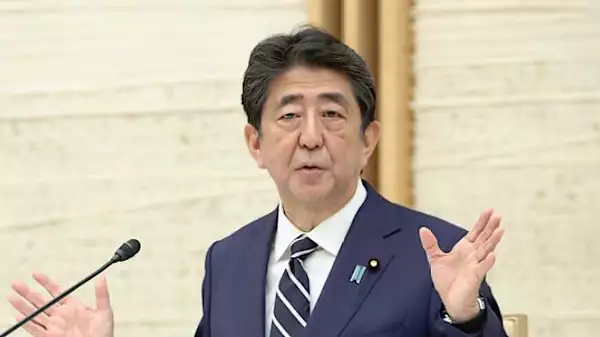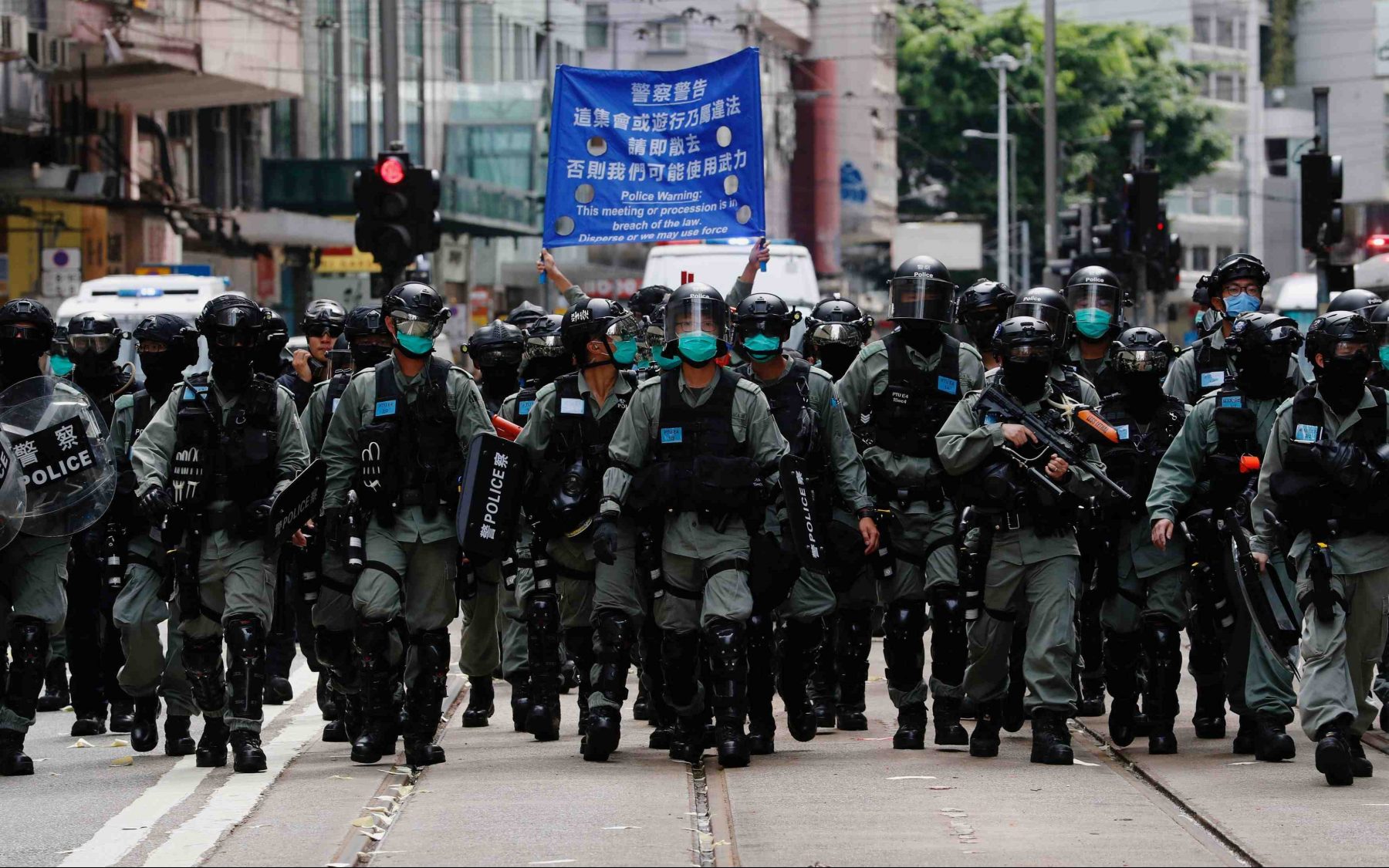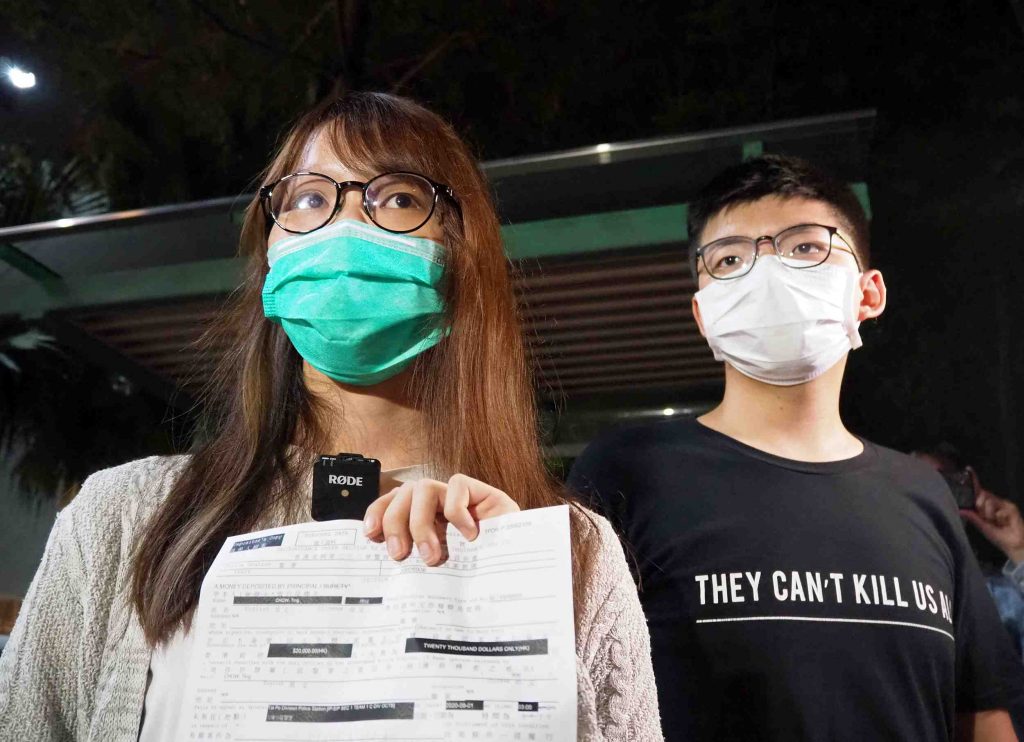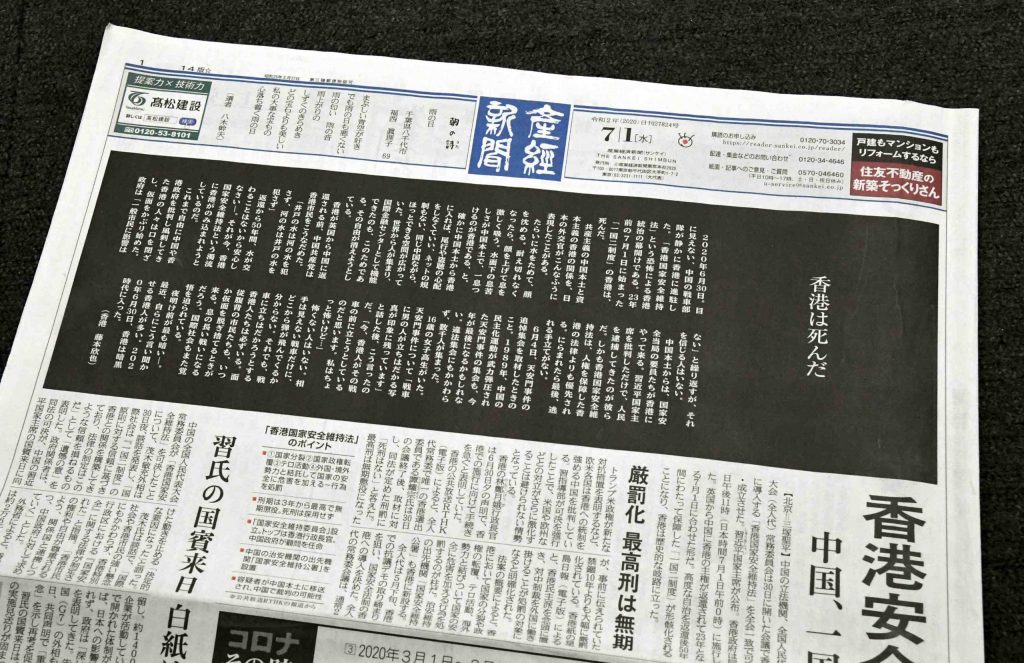Biological Weapons the Focus of China’s Military Research in the Last 20 Years


Japan Forward - By Dr. Monika Chansoria - Published March 25, 2020
Independent Chinese media outlet Caixin Global revealed that Chinese laboratories had in fact identified a mystery virus — later identified as COVID-19 — to be a highly infectious new pathogen by late December 2019. But they were ordered to stop further testing, destroy samples, and suppress the news to the fullest extent possible.
The regional health official in Wuhan City, the epicenter of the pandemic, demanded the destruction of the lab samples, which established the cause of an unexplained viral pneumonia since January 1, 2020. China didn’t acknowledge that there was human-to-human transmission until more than three weeks later.
Caixin Global provides the clearest evidence yet of the scale of this fatal cover-up in the very crucial early weeks, when the opportunity was lost to control the outbreak — a contagion that spread throughout the world thereafter, and has caused a global shutdown, literally.
Warfare Beyond Rules
It is only apposite to go back and trace the many notable military research writings that have advocated for more than two decades that China should prepare itself to wage warfare beyond rules put in place by the Western powers.
In 1996, two Chinese military officers (colonels in the People’s Liberation Air Force (PLAAF), Qiao Liang and Wang Xiangsui, took part in military exercises conducted by China for the purpose of coercing the island nation of Taiwan. This was the period when Taipei was getting ready for its presidential elections. Soon enough, East Asia witnessed the return of great power rivalry to the region when the United States dispatched two aircraft carrier groups to the area.
This became the backdrop in which these two colonels met in a small town in southeastern China’s Fujian province and began their research. The end product was a co-authored book, Chao Xian Zhan: Dui Quanqiu Hua Shidai Zhanzheng yu Zhanfa de Xiangding (Warfare Beyond Rules: Judgment of War and Methods of War in the Era of Globalization), published by the People’s Liberation Army (PLA) Art Press.
The central premise of Warfare Beyond Rules is that China should be prepared to conduct “warfare beyond all boundaries and limitations to defend itself.”
In the book, Qiao and Wang argue that the existing rules of war, international laws, and agreements were developed by the Western powers, and that the United States leads the race in new-age military technologies and weapon platforms. Writing more than two decades ago, Qiao and Wang stated that, because of higher costs, cutting-edge weapons’ platforms could trigger a national economic collapse.
A Revolution in Warfare By All Means
The book — termed Unrestricted Warfare in the English translated version — went on to state that geographical security is an outdated concept. Threats to national security may not come from cross-border invasion, but from non-military actions. Qiao and Wang articulated that definitions of security must include geographical, political, economic, resource, religious, cultural, data, environmental, and near-earth space security.
While commenting on the bans on chemical, biological weapons, and landmines, the authors argued that for a country to accept rules which regulate war depends on whether the laws and rules are favorable to its own national interests. They contended that powerful nations use the rules to control others, for instance “by banning chemical and biological weapons.”
The essence drawn out from these arguments is that China should freely decide and opt for the means of warfighting by disregarding agreements and codes of conduct developed over the past decades by the West. Basically, in theory, the book Warfare Beyond Rules highlights thinking out of the box.
Most significantly, with an aim to target the adversary’s vulnerable targets in unexpected ways, Warfare Beyond Rules underlined the concepts of “asymmetric warfare.” This included guerrilla war, terrorist actions, and cyber-attacks against data networks.
Qiao and Wang called for a “revolution in war,” which combines conventional with non-war actions, and military with non-military actions. In an alarming opinion, they stated that war may include a blend of stealth planes and cruise missiles, along with biochemical, financial, and terrorist attacks.
War for Biological Dominance
More than a decade later, a 2010 publication titled War for Biological Dominance (制生权战争) emphasized the impact of biology on future warfare.
The book, published by Xinhua Publishing House in October 2010, was authored by Guo Jiwei (郭继卫), a professor and chief physician at the Third Military Medical University, Army University. The book highlighted the decline of traditional military thinking and focused upon emerging trends in military thinking, the invisible battlefield, and unexpected changes.
Subsequently, in 2015, then-president of the Academy of Military Medical Sciences He Fuchu (贺福初) argued in an essay that biotechnology would assume the shape of a new strategic commanding height in national defense. These will range from biomaterials to “brain control” weapons.
He Fuchu went on to become the vice president of the PLA’s Academy of Military Sciences (中国人民解放军军事科学研究院 Zhōngguó Rénmín Jiěfàngjūn Jūnshì Kēxué Yánjiūyuàn) — the highest-level research institute of the PLA, headquartered in Beijing.
Chinese writings over the past two decades have amplified that cross integration of biotechnology, engineering, and information technology will become the new strategic doctrine for future military revolutions, as cited in the October 2015 edition of the Liberation Army Daily. These writings consistently put forth that weaponization of living organisms shall become a reality in the future, with non-traditional combat styles taking center stage.
Biology Among the 7 New Domains of Warfare
Foremost among the new-age defense high frontiers will be the biological frontier. Biodiversity and technology innovation will redefine biological military revolution. Since 2016, China’s Central Military Commission has been funding projects on military brain science, advanced bio-mimetic systems (that mimic biological systems), biological and biomimetic materials, and new-age biotechnology.
Further and more significantly, biology has been demarcated as “one of the seven new domains of warfare” in a 2017 book titled New Highland of War (National Defense University Press) authored by Zhang Shibo (张仕波). Zhang is a retired general and former president of China’s National Defense University. In the book, Zhang argues that modern biotechnological development is gradually showing strong signs characteristic of an offensive capability, including the possibility of employing “specific ethnic genetic attacks” (特定种族基因攻击).
More recently, the 2017 edition of Science of Military Strategy (战略学) — an authoritative textbook published by the PLA’s National Defense University — has introduced a new section on “biology as a domain of military struggle.” This section discusses new potential kinds of biological warfare, including “specific ethnic genetic attacks.”
Contemporary advances in biotechnology and genetic engineering hold worrying implications for military affairs. The Chinese military’s interest in these gets reflected through its strategic writings and research, which consistently have argued that advances in biology are contributing to changing the form or character (形态) of conflict.
China’s 13th Five-Year Plan
China’s national strategy of military-civil fusion (军民融合) has highlighted biology as a priority. As a result, as per the September 2017 Thirteenth Five-Year Special Plan for Military-Civilian Integration Development, the Party Central Committee, the State Council, and the Central Military Commission have put in motion the full implementation of the development strategy of military-civilian integration in the field of science and technology. This was done in accordance with the 13th Five-Year Plan for National Economic and Social Development of the People’s Republic of China.
Among the key tasks of this 2017 plan are the implementation of key technology-military-civilian integration projects.
In accordance with the requirements of the key national research and development (R&D) plan for the design of the entire chain and implementation of integrated organizations, a number of deployments have been made. These include the fields of biology, among others, with dual-use features to accelerate the formation of new productivity and combat effectiveness in scientific and technological achievements.
The plan also aims to strengthen the capability of military and civilian science and technology collaborative innovation and coordinate the layout of basic research and cutting-edge technology research. Accordingly, a special fund for basic research military-civilian integration has been set up to focus on supporting basic national defense research projects and promote the transformation of the results of basic civil research into military applications — more specifically, in the fields of biological crossover and disruptive technologies.
Study of the Chinese military’s interest in biology as an emerging domain of warfare becomes increasingly relevant in the current COVID-19 context, particularly when viewed against the two-decade-old backdrop of emphasis on biological frontiers of warfare put forth by Chinese military thinkers.
It is well-established that Chinese military strategists have been arguing about potential “genetic weapons” and the possibility of a “bloodless victory.” The task becomes all the more challenging, owing to the lack of transparency and uncertainty of ethics in China’s research activities.
Thus, the research writings cited above defend China’s move, if it were to come to that, of not hesitating to use as many means of warfare as possible. Clearly, those include weapons that are “not permitted by international law and the rules of war,” such as chemical and biological weapons.
The dangerous recommendations of most of these writings raise alarm bells about China’s future commitment on banning chemical and biological weapons.
RELATED ARTICLE: Is China Producing Biological Weapons? Look At Its Capabilities and International Compliance
Author: Monika Chansoria
Dr. Monika Chansoria is a Senior Fellow at The Japan Institute of International Affairs in Tokyo and the author of five books on Asian security. The views expressed here are those of the author and do not necessarily reflect the policy or position of The Japan Institute of International Affairs or any other organization with which the author is affiliated.

Shinzo Abe Vows to Share Coronavirus Vaccine to the World, As Japan Lifts State of Emergency

Dr. Monika Chansoria is a Senior Fellow at The Japan Institute of International Affairs (JIIA) in Tokyo. Previously, she has held appointments at the Sandia National Laboratories (U.S.), Hokkaido University (Sapporo, Japan) and as Associate Director of Studies at the Fondation Maison des Sciences de l’Homme (Paris). She specializes in contemporary Asian security and weapons’ proliferation issues, nuclear strategy, and, Great Power politics and strategy in the Indo-Pacific.
Dr. Chansoria has authored five books on Asia’s security affairs, including “China, Japan and Senkaku Islands: Conflict in the East China Sea Amid an American Shadow” (Routledge © 2018) and “Nuclear China: A Veiled Secret” (2014) among others. The views expressed here are those of the author and do not necessarily reflect the policy or position of The Japan Institute of International Affairs or any other organization with which the author is affiliated. She tweets @MonikaChansoria
POLITICS & SECURITY
Waiting for the Day When Hong Kong is Liberated
On June 30, 2020, China’s national security law for Hong Kong took effect and overnight the freedom that the people of Hong Kong had previously enjoyed was snatched away from them.

Published 12 hours ago on March 15, 2021
By Kinya Fujimoto, Sankei Shimbun


“Eating human blood buns” is a rather disturbing Chinese expression.
It is derived from an old superstition that eating buns covered with human blood is effective in treating lung disease. For that reason, some people would even bribe executioners to allow them to dip buns they had brought to the execution site into the blood of a freshly executed prisoner.
Nowadays it is used as a figure of speech to describe someone who benefits from the sacrifices of others. In Hong Kong it is used in reference to individuals who have cleverly engaged in behavior designed to profit from the misery of the innumerable young people who have been arrested for participating in anti-government demonstrations.
When I heard the news that I had won the Vaughn-Uyeda Memorial Prize, the lurid expression “eating human blood buns” was what flashed through my mind.
RELATED: Sankei Shimbun Deputy Editor Kinya Fujimoto Wins Prestigious Vaughn Prize
Recently news about Hong Kong has been pushed from the front pages by the coup d’état in Myanmar and the ongoing protest demonstrations that have followed. Images of security forces firing on unarmed protestors and young people whose white shirts are covered with blood have been broadcast worldwide.

The driving force behind the demonstrations in Myanmar are young people who had grown up in the heady atmosphere of freedom, after the transition to civilian rule in 2011, following decades of military dictatorship. They had stepped up to physically oppose the military regime’s stealing from them liberty and rights they had already come to consider their own.
In that respect they are similar to the young people in Hong Kong, who were in the forefront of the anti-government, anti-China demonstrations. Their generation was born around the time of the 1997 reversion of Hong Kong from Great Britain to China. In other words, the most stalwart supporters of the demonstrations hail from the generation that grew up in Hong Kong enjoying rights of free speech and assembly which were not recognized in China proper.
Leading members of the democracy movement, such as Joshua Wong (24) and Agnes Chow (24), belong to that generation.
A fundamental difference you can feel between their generation and preceding generations that were born during the British colonial period is that they consider Hong Kong their “homeland” that needs to be defended, and not just a temporary waystation in their life journeys.
I made many working trips to report on Hong Kong during 2019 and 2020.
I vividly recall what happened there on July 16, 2019, when I saw before my eyes a two-million-strong demonstration (according to the organizer’s estimate). Based on my experience I could not help but palpably feel the tragedy of Hong Kong.
You see, earlier I had been stationed in Beijing, the home base of the Xi Jinping regime, and had reported there on the crackdown against the Uyghurs in Xinjiang Province and other sensitive issues. I was therefore convinced that in the face of this strong rebuke of Beijing the “Xi leadership would not remain quiescent.”
Two days after the massive demonstration I had the opportunity to interview Anston Chan (81), who was formerly known as the “conscience of Hong Kong.” She had previously served as the number two official in the Hong Kong Government both under the British colonial rule and then for some time after reversion to China. And it so happened that at that time I was head of The Sankei Shimbun’s Hong Kong Bureau.
Since she had developed a reputation for not mincing words when dealing with the Chinese authorities, I asked her straight out for her honest impression of the demonstration.
“I think that demonstration reflected a feeling of hope,” she replied. “The burning love for their city displayed by the young people made me feel that there is no need to worry about Hong Kong’s future.”
Later, however, the peaceful demonstrations vanished, the city was enveloped in tear gas and the streets ran with blood. Then a little over one year after two million citizens of Hong Kong marched, the “invisible tanks” arrived to occupy the city.

On June 30, 2020, China’s national security law for Hong Kong took effect. In response, I immediately wrote a story with the title “The Death of Hong Kong.” Overnight the freedom that the people of Hong Kong had previously enjoyed was snatched away from them.
RELATED: July 1, 2020 Marks the Death of Hong Kong
What has happened in Hong Kong since then?
Most democracy activists have been jailed, pro-democracy legislators have been stripped of their qualification to hold office, rights of free speech and assembly have been greatly curtailed, and “patriotic education” is being pushed in the schools…
Nearly all the democracy movement members I interviewed in the past have been arrested. Joshua Wong and Agnes Chow remain behind bars.
At the same time, there is another democracy movement activist I know who proposed marriage to his girlfriend on the very day that the new state security law took effect. The couple had vowed that they would go forward in life together come what may in the time of darkness for Hong Kong. That man still can be seen demonstrating on street corners.
“We must continue to live, to live, to survive.” There is another man I know, an advocate for Hong Kong independence, who is doing manual labor, keeping his mouth shut, waiting for the storm to pass.
Silence has descended upon the streets of Hong Kong. It is as if history has come to a standstill. But that does not mean that nothing is happening in the city. The day will surely come when the wheel of history again begins moving forward.
What is to follow the two-million-person march? Tragedy? Hope? History has not yet rendered its verdict.
Only when the day comes that I can write an article titled “Hong Kong Has Been Liberated” will I look with pleasure upon the award I have just received from my peers.
I refuse to eat buns soaked in the blood of the innocents.
(Read more of the author’s articles on Hong Kong and China in English at this link, and find this article in Japanese at here.)
Author: Kinya Fujimoto, Deputy Editor of The Sankei Shimbun
IMPERIAL JAPAN'S HUMAN EXPERIMENTS BEFORE AND DURING WWII TAKEN OVER BY THE CHINESE (book)
COPYRIGHTS
Copy & Paste lenken øverst for Yandex oversettelse til Norsk.
WHO and WHAT is behind it all ? : >
The bottom line is for the people to regain their original, moral principles, which have intentionally been watered out over the past generations by our press, TV, and other media owned by the Illuminati/Bilderberger Group, corrupting our morals by making misbehaviour acceptable to our society. Only in this way shall we conquer this oncoming wave of evil.
Commentary:
Administrator
HUMAN SYNTHESIS
All articles contained in Human-Synthesis are freely available and collected from the Internet. The interpretation of the contents is left to the readers and do not necessarily represent the views of the Administrator. Disclaimer: The contents of this article are of sole responsibility of the author(s). Human-Synthesis will not be responsible for any inaccurate or incorrect statement in this article. Human-Synthesis grants permission to cross-post original Human-Synthesis articles on community internet sites as long as the text & title are not modified.
The source and the author's copyright must be displayed. For publication of Human-Synthesis articles in print or other forms including commercial internet sites. Human-Synthesis contains copyrighted material the use of which has not always been specifically authorized by the copyright owner. We are making such material available to our readers under the provisions of "fair use" in an effort to advance a better understanding of political, economic and social issues. The material on this site is distributed without profit to those who have expressed a prior interest in receiving it for research and educational purposes. If you wish to use copyrighted material for purposes other than "fair use" you must request permission from the copyright owner.